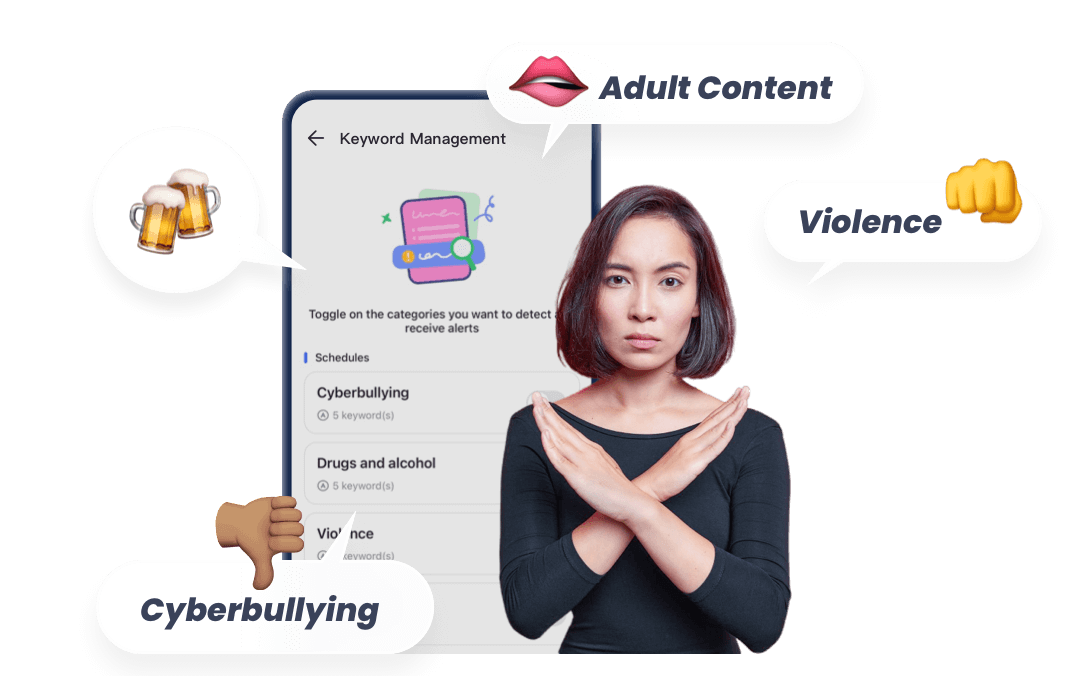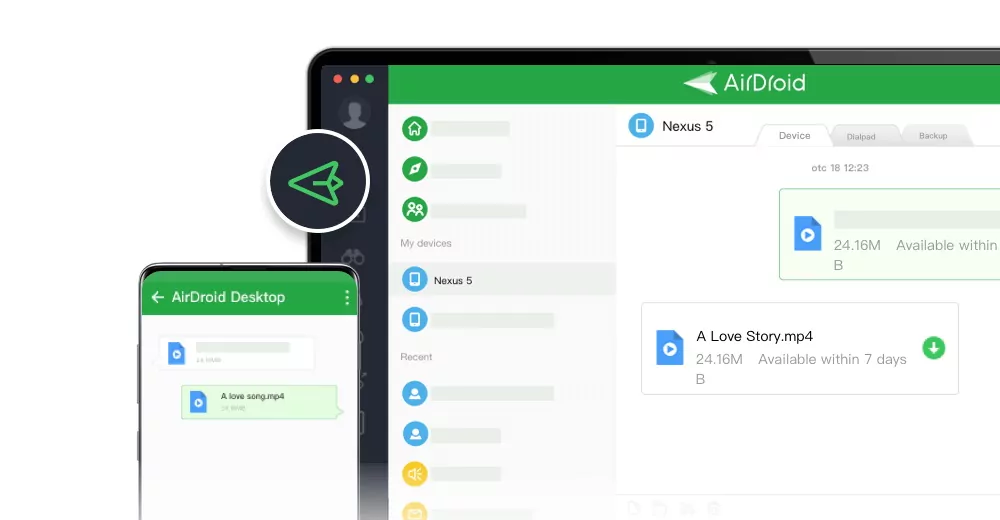Understanding the Safety Risks of Omegle and Its Clone Platforms (A Must-Read for Parents)
Omegle was a popular website where you could video chat with strangers. Its tagline was "Talk to Strangers." But this simple idea had serious flaws. It became a dangerous place for kids, who faced online predators, bullying, and had their privacy violated.
In November 2023, Omegle finally shut down after facing lawsuits over child safety. But the problem isn't gone. Many copycat sites, or "clones," have appeared. These Omegle alternatives are just as risky, and they continue to put teens in danger online.
Real-Life Cases and Alarming Statistics
Real-Life Cases
The case that finally closed Omegle is a heartbreaking example. According to Wikipedia, a woman sued the platform in 2021. When she was just 11, Omegle matched her with a man in his 30s. He then forced her to send abusive photos and videos for three years.
The man was sent to prison. Omegle paid $22 million to settle the case. Sadly, this was not a one-time event. Similar stories show how Omegle's design put children directly in harm's way.
Shocking Statistics
The numbers paint a grim picture. The Canadian Centre for Child Protection received a report about Omegle every two days. Reports of abuse on the site grew by nearly 400% since 2018.
A BBC study in 2022 found something even more disturbing. Half of all video chats on Omegle showed sexual violence or hate speech. Many of these chats involved children. Research also shows Omegle was the top platform for online predators to interact with kids.
The Global State of Child Online Safety
This is a worldwide problem. A 2024 study found that over 300 million children face online sexual abuse each year. That's about one in every eight children globally. Think about what this means:
- A report of child abuse material is made every single second.
- In the U.S., 1 in 9 men admit to committing online crimes against kids.
- The creation of sexual images by kids aged 7-10 has soared by 360%.
Main Risks of Omegle and Its Clone Sites
Online Predators: Anonymity makes these sites a hotspot for predators. Omegle even warned users to "please be careful," but did little to stop them. Random chats make it easy for predators to find, threaten, or blackmail kids.
No Age Verification: These sites have weak or no age checks. This allows children to easily lie about their age and enter adult spaces.
Inappropriate Content: Kids can easily stumble upon pornography, violence, and other harmful material. These sites don't moderate content well, so dangerous videos stay up.
Privacy and Data Leaks: A user's location (IP address), chat messages, and even screenshots can be stolen. This information can be used for bullying or other crimes.
Malware and Scams: Many clone sites are filled with dangerous ads. They can trick users into downloading viruses or visiting scam websites to steal information.
Even though Omegle is gone, its clones are active and just as dangerous. Here is a quick look at the risks of some popular Omegle alternatives.
| Domain | Security Rating | Main Risks and Issues |
|---|---|---|
| https://www.omegle.fun/ | Generally trustworthy but unregulated | No age checks, no content moderation, may collect sensitive data. |
| https://ome.tv/ | Functional but high risk | No age verification, no real-time moderation, a hotspot for predators. |
| https://web.omegle.onl/chat/ | High risk (malicious ads) | Pushes adult ads and scams, hard to unsubscribe, risk of malware. |
| https://omegleweb.io/ | Significant traffic, unclear safety | Claims it's monitored but offers no proof. It's anonymous with no age checks. |
Parental Protection and Safety Tips
Technical Safeguards
Parental Control Software: Use powerful tools like AirDroid Parental Control. Its web filter can block dangerous sites that even VPNs can't hide.
You can also use free tools like Google Family Link or Apple Screen Time, but kids may find ways around them.
Network Filtering: You can block these risky websites directly from your home's Wi-Fi router. Also, be sure to turn on "safe search" on all browsers and devices.
Education and Communication
Talk openly and often with your kids about what they do online. Teach them how to spot red flags from online strangers. Remind them to never share personal details or agree to meet an online friend in person.
Monitoring and Rules
Set clear rules for screen time and internet use. Keep computers and tablets in common areas of the house, like the living room. Check their browser history and installed apps, and report any harmful content you find.
Frequently Asked Questions (FAQ)
1Why worry if Omegle has shut down?
Omegle is gone, but many clone sites (like ome.tv and omegle.fun) are still running. These sites have no rules or safety features, making them even more dangerous.
2How are these clone sites different from Omegle?
Most are very similar in how they work and the risks they pose. Some are even worse, with more aggressive ads, scams, and potential for data theft.
3How can I tell if my child is using these sites?
Use an app like AirDroid Parental Control to see what websites they visit. You should also check their browser history and look for any new, unfamiliar apps on their devices.
4What should I do if my child has already used one?
Stay calm and talk to your child about what happened. If they were exposed to anything illegal or were threatened, save any proof and report it to the police. Use this as a chance to teach them about online safety.
5Are there other high-risk apps I should know about?
Yes. Apps like Azar, Yalla, and Chatous also use random matching to connect strangers. They carry similar risks and require parents to be just as careful.
6Is blocking these sites enough to protect my child?
Blocking helps a lot, but it's not foolproof. The best protection comes from a mix of technical tools, open family talks, and ongoing education about digital safety.
Conclusion and Recommendations
The end of Omegle was a step forward, but the fight for child safety online is far from over. As a parent, you are the first and most important line of defense. Here's what you can do:
Stay Vigilant: Know which apps and websites your child uses.
Stay Involved: Be a part of your child's digital world and keep conversations open.
Use Safety Tools: Make smart use of parental control software to set boundaries.
Educate and Guide: Regularly teach your child how to stay safe online.
Set Clear Rules: Establish firm rules for internet use and screen time.
An expert called this issue "a global public health crisis that has been hidden for too long." Protecting our children requires a team effort from parents, schools, and tech companies. In today's digital world, your guidance and involvement are the most powerful tools you have to keep your child safe.













Leave a Reply.